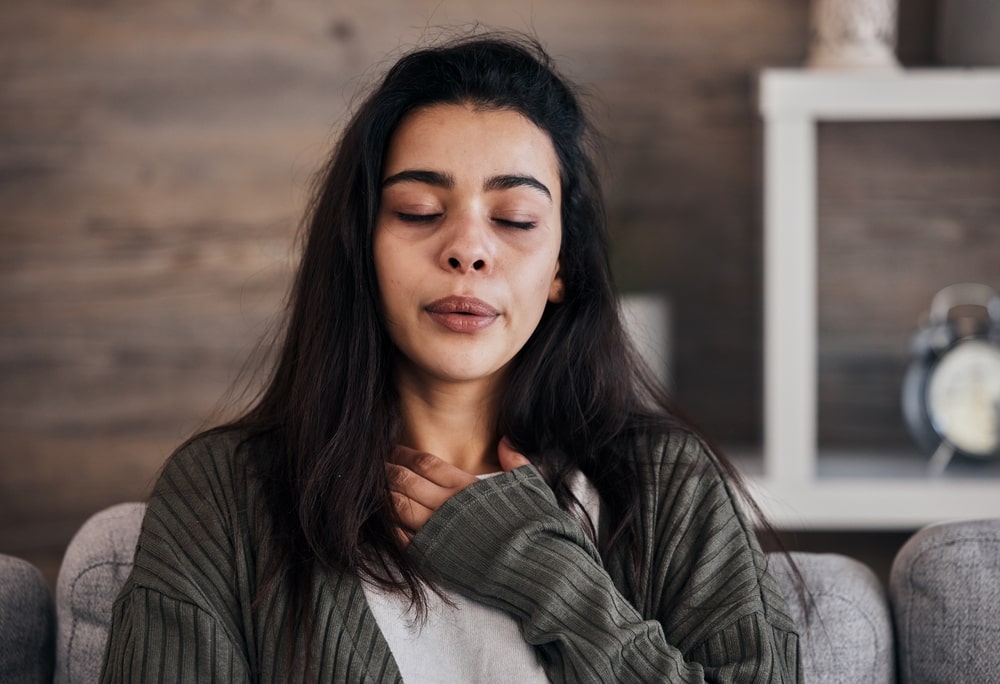Substance abuse is defined as the use of a substance for a purpose that is inconsistent with legal or medical guidelines. The connection between substance abuse and anxiety is multifaceted, involving various interactions between psychological, physiological, and behavioral factors. Anxiety is referred to as “a feeling of worry, nervousness, or unease, typically about an imminent event or something with an uncertain outcome.” The relationship between anxiety and substance abuse is complex and often bidirectional, meaning each can contribute to and exacerbate the other. Individuals with anxiety disorders may engage in substance abusing behaviors to self-medicate, using drugs and/ or alcohol as a maladaptive means to cope with or alleviate overwhelming feelings, while substance abuse can, in turn, lead to or worsen anxiety symptoms. Several key aspects that contribute to the connection between anxiety and substance abuse include:
- Biological factors: Both anxiety and substance abuse can result in neurobiological changes. For example, substances may alter neurotransmitter levels, affecting mood and anxiety regulation. These changes can contribute to the development and maintenance of both conditions.
- Shared risk factors and triggers: There are common risk factors for both anxiety and substance abuse, such as genetic predisposition, trauma, and environmental stressors. Additionally, situations that trigger anxiety may also trigger substance use as individuals attempt to cope with or escape from anxiety-inducing scenarios.
- Withdrawal and anxiety: Substance withdrawal symptoms can include heightened anxiety, creating a cycle where individuals continue substance use to avoid or alleviate withdrawal-related anxiety.
- Genetics: There is evidence suggesting a genetic predisposition to both anxiety disorders and substance use disorders. Shared genetic factors may contribute to the increased likelihood of these conditions co-occurring within certain individuals or families.
- Increased vulnerability: Anxiety can increase vulnerability to substance abuse, and vice versa. Chronic anxiety may heighten susceptibility to the allure of substances as individuals seek relief, while substance use can contribute to the development or intensification of anxiety symptoms.
- Impact on treatment: The presence of both anxiety and substance abuse can complicate treatment efforts. Substance use may interfere with the effectiveness of anxiety treatments, and addressing anxiety symptoms can be challenging while substance use continues.
Recognizing the interconnected nature of anxiety and substance abuse is imperative for developing targeted interventions and treatment strategies. Integrated treatment plans that address the underlying causes and provide coping mechanisms for both conditions are essential for breaking the cycle of self-medication and promoting sustained recovery.
Treatment In Calabasas
Calabasas is a city in California. It is a well-known suburb of Los Angeles, located west of the San Fernando Valley and north of the Santa Monica Mountains. Over the past decade, the city of Calabasas has grown in its reputation for luxury as well as for privacy which makes it a hidden gem for residential living for society’s elite, and one of the most desirable destinations in Los Angeles County. It is also home to a plethora of highly qualified mental health clinicians providing an array of therapeutic services and treatment options.
The information above is provided for the use of informational purposes only. The above content is not to be substituted for professional advice, diagnosis, or treatment, as in no way is it intended as an attempt to practice medicine, give specific medical advice, including, without limitation, advice concerning the topic of mental health. As such, please do not use any material provided above to disregard professional advice or delay seeking treatment.


